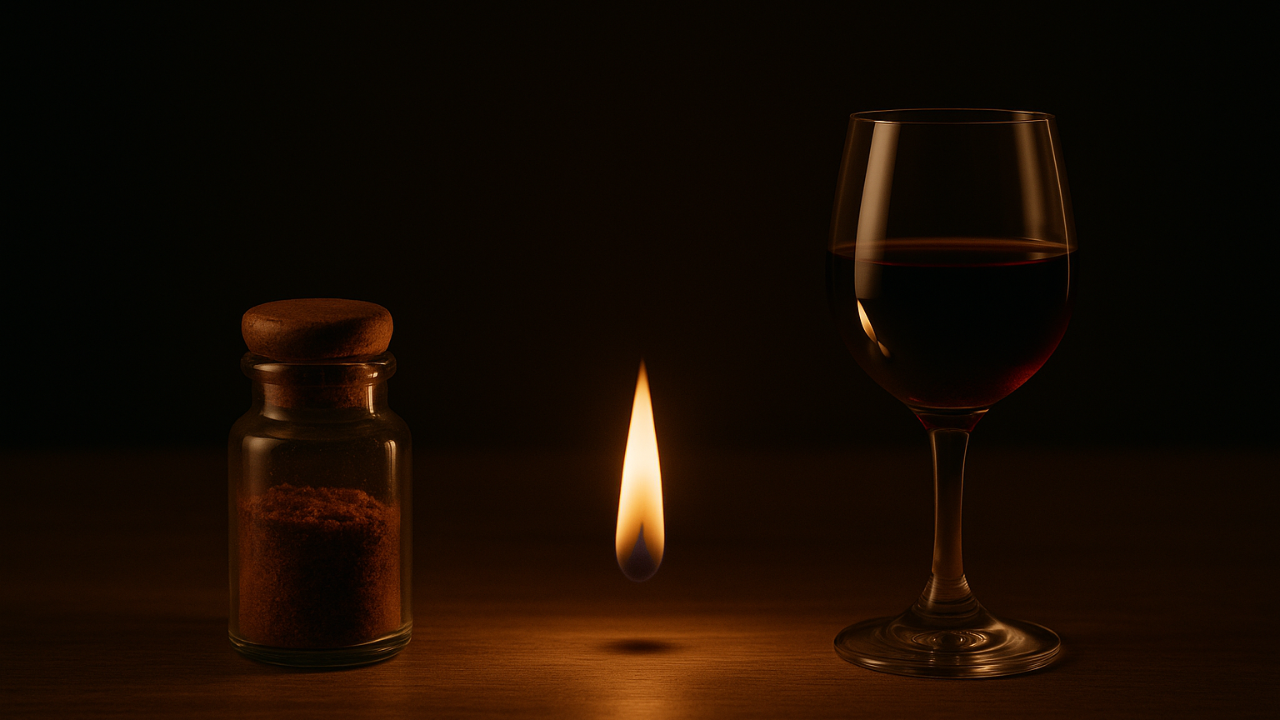
The Banquet of Desire: From Spice to the Feast Itself
Sep 28, 2025It started with a simple, late-night text message.
“Question, what do you think of desire?”
My answer was immediate, a truth that felt self-evident: “Desire is the spice of life.”
But a good question deserves a feast, not just a single flavor. That initial statement was the first spice rubbed onto the meat of the conversation. What followed was a journey through the kitchens of some of history’s most expansive minds, all exploring the same essential ingredient.
Course 1: The Wild Rebel’s Feast (Tom Robbins)
If desire is a spice, Tom Robbins is the chef who uses it with reckless, joyous abandon. He argues that desire isn’t the problem; our clumsiness with it is.
“If desire causes suffering, it may be because we do not desire wisely, or that we are inexpert at obtaining what we desire. Instead of hiding our heads in a prayer cloth and building walls against temptation, why not get better at fulfilling desire? Salvation is for the feeble, that's what I think. I don't want salvation, I want life, all of life, the miserable as well as the superb.”
For Robbins, life is a magnificent banquet laid out on a “rich, round planet,” and desire is our invitation to taste everything. To refuse out of fear is to “recoil from it like a toothless bunny.” His is a horizontal philosophy—a celebration of the full, messy, glorious human experience. Desire is the engine of exploration, and fear is just “desire in reverse,” the desire for a different outcome.
Course 2: The Soul’s Sacred Wine (Rumi)
Then the conversation turned eastward, to the mystical poetry of Rumi. Here, desire takes on a vertical dimension. It becomes not just a spice for life, but the very fire of the soul seeking its source.
Rumi reframes our aching not as a lack, but as a connection. In his poem “Love Dogs,” a man stops praying because he never hears a response. In a dream, the sage Khidr tells him:
“This longing you express is the return message. The grief you cry out from draws you toward union.”
For Rumi, the desire for God is God’s desire for you. The whining of the dog for its master is the connection to the master. The thirst itself is the proof of water. This is a profound shift: desire is not a problem to be solved, but a sacred guide to be followed.
Course 3: The Tavern Keeper’s Wink (Hafez)
Finally, we entered the tavern of Hafez, the master of sacred irony. Hafez performs the ultimate magic trick: he finds the divine not by rejecting the world, but by embracing it so fully that it becomes transparent.
He takes Robbins’ banquet and Rumi’s divine longing and fuses them. The “wine” of worldly experience and joy is not a sin but a sacred offering.
“What is the difference between your experience of Existence and that of a saint? The saint knows that the Beloved has poured that glass of wine for you since before time began, and that it has always been your destiny to drink it.”
Hafez winks at the zealots who frown upon desire. He suggests that the one who judges you for your authentic longing is the one who is truly lost. The path to God, for Hafez, runs straight through the heart of a joyful, liberated life.
The Shared View: The Meal Beneath the Spice
After this journey through passionate feasts, ecstatic prayers, and tavern wisdom, we arrived back at the beginning, but with a deeper understanding.
Life. Love. God.
These are the true objects of all desire. And the great secret, whispered by these wise cooks and poets, is that we already have them. The frantic seeking, the tasting of joys and sorrows, the burning longing—it’s not about acquisition. It’s about remembering.
The spice is not the meal. Desire is not the destination. But the spice makes us appreciate the meal, and desire makes us conscious participants in the journey home—a journey to the realization that we never left.
Desire is the spice of life. And as we learn to savor it wisely, playfully, and sacredly, we discover that the spice was the first hint of a flavor that permeates everything: the taste of the infinite, already here.
This post was inspired by a real conversation. Gratitude to the poets and the seekers.

